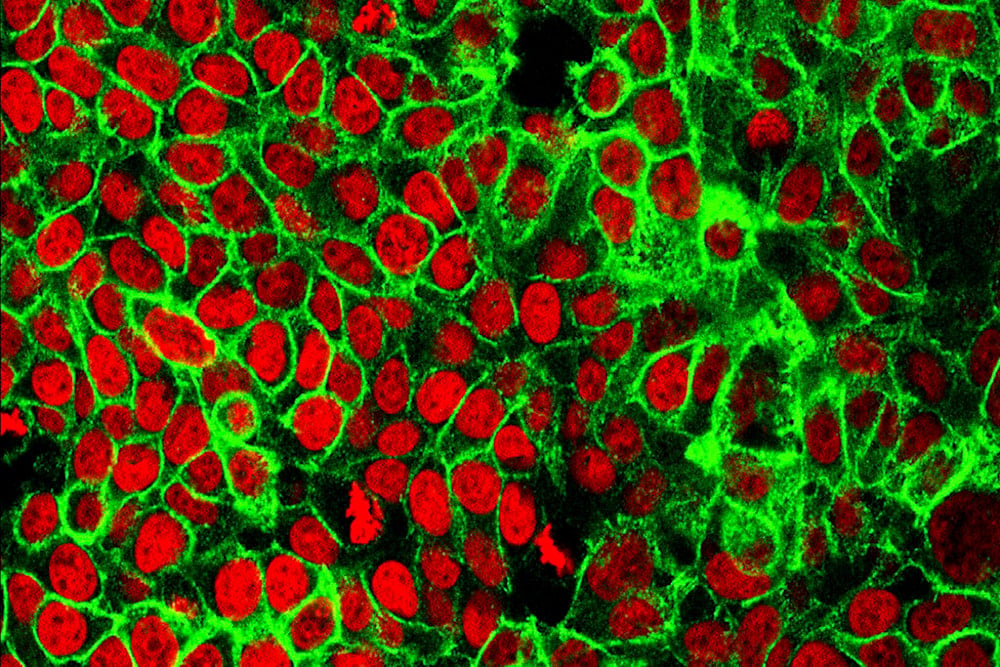Russia completes preclinical trials of cancer vaccine, seeks approval
Russia's FMBA announced its cancer vaccine has completed preclinical trials with reported safety and 60–80% tumor reduction, now awaiting approval for initial use against colorectal cancer.
-

FILE - This microscope image from 2015 shows human colon cancer cells with the nuclei stained red. (NCI Center for Cancer Research via AP)
Russia's Federal Medical and Biological Agency (FMBA) says its cancer vaccine has completed preclinical testing, with data showing both safety and notable effectiveness. The announcement was made by FMBA head Veronika Skvortsova during the Eastern Economic Forum (EEF) in Vladivostok, according to Tass.
"The research spanned several years, with the last three dedicated to mandatory preclinical studies," Skvortsova explained. "The vaccine is now ready for use; we are awaiting official approval."
According to Skvortsova, repeated dosing in animal models proved safe and yielded measurable benefits: tumor size and progression were reduced by 60% to 80%, while survival rates improved. The vaccine's first intended use will be against colorectal cancer, though parallel work is advancing on formulations for glioblastoma and melanoma, including ocular melanoma, which she described as being at advanced development stages.
Vaccine Breakthrough
The FMBA has been signaling this milestone since late 2024, when officials suggested clinical use could begin in 2025 under new Russian legislation governing personalized medicines. Still, no peer-reviewed data or clinical trial registration has yet been made public, meaning independent validation will only come with Phase I human trials.
The announcement was delivered on the sidelines of the 10th EEF, which drew over 8,400 participants from more than 75 countries under the theme "The Far East: Cooperation for Peace and Prosperity." Russia used the forum to highlight new scientific and economic projects, including biotechnology advances.
Cancer vaccines differ from standard inoculations against viruses such as measles or chickenpox. Instead of preventing infection, they train the immune system to recognize and attack tumor cells. Therapeutic cancer vaccines already exist for prostate and bladder cancers, while others, including personalized mRNA-based candidates in the United States and Europe, are under active development.
Read more: Senate report reveals Trump slashed cancer research by 31%
Observers warn that while the FMBA's results are promising, the absence of published data underscores the need for transparency. Global researchers point out that many cancer vaccine candidates show strong results in preclinical trials but face steep hurdles in demonstrating effectiveness in humans.

 2 Min Read
2 Min Read










